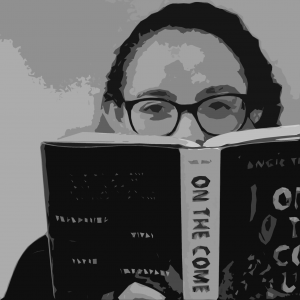By: Tomi Adeyemi
As I keep bringing up, I do struggle with fantasy. I do also value the historical importance of representation in novels. There were a few things this book did really well. I loved learning about the Orisha, and Yoruba mythology in general. I found it compelling and enchanting that both Amari and Inan were willing and able to adjust their opinions and challenge their roles in the kingdom when presented with new information. Amari, who was so sheltered and innocent to the ways of the world, took a gargantuan leap to escape her bubble, and I don’t think she was given a whole lot of credit for that move. I liked that Zelie is both impenetrably tough and super vulnerable about her trauma. I think in real life those two juxtapositions exist frequently, but are not really explored as much in fiction. I am drawn by the bond of Zelie and Tzain, and the possibilities that they face when working in conjunction with Amari and Inan because the four are ultimately fighting for the same cause, but they all approach the struggle from different angles.
I struggle with the writing a bit. The author writes circuitously, so that my brain gets a little lost by the time we make it to the main point of a thought. I also get distracted by the time jumps in between sections. I don’t usually struggle with this, but I think because there is seemingly no rhyme nor reason to the structure of the jumps in time, it takes me a moment to acclimate to the point in time in which we have arrived. I really wanted to learn more about the world of magic and the history of the Orisha, and so I have begun my own research independent of these books to learn more.
I plan to continue reading the series.

